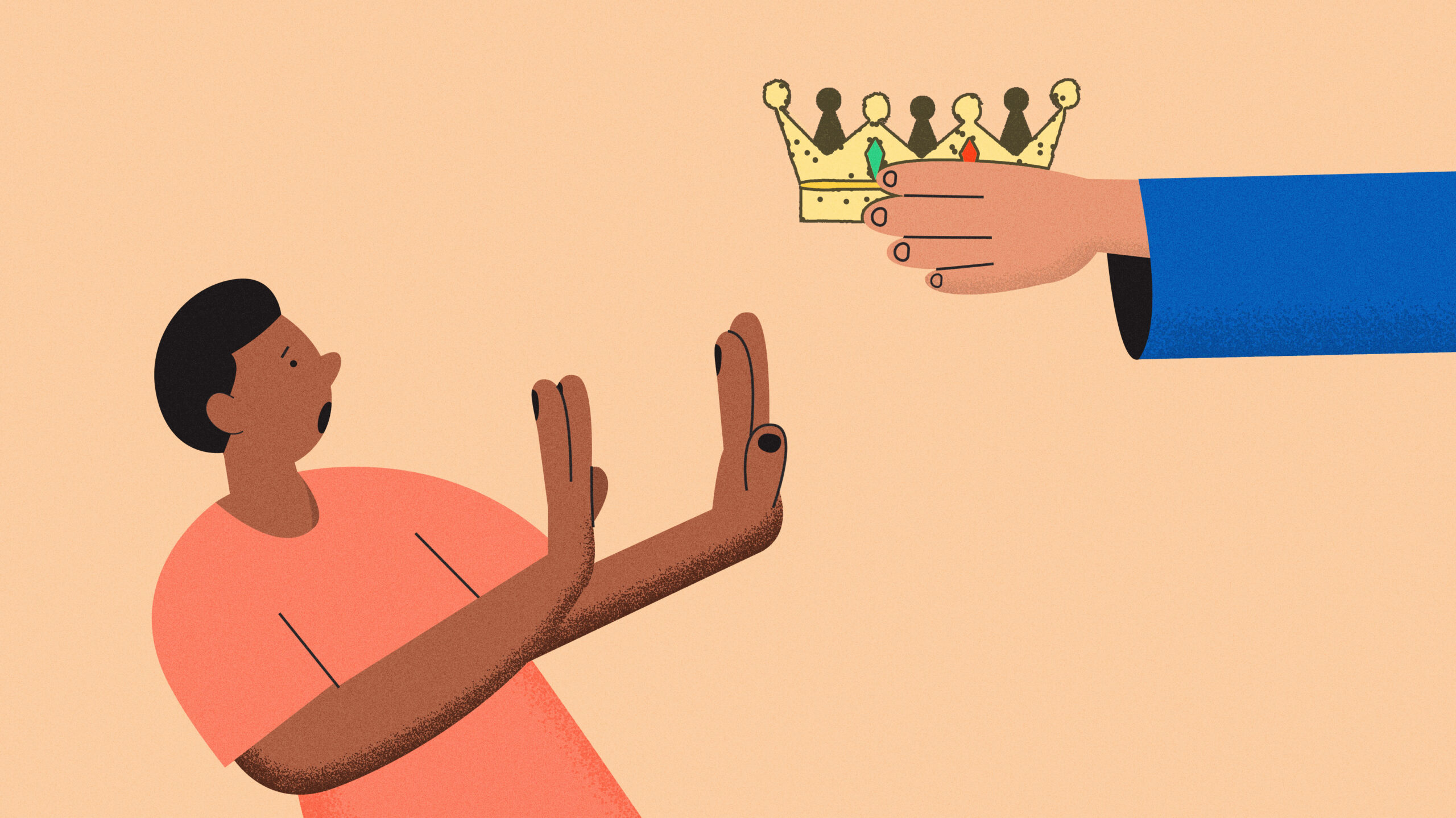Features
Fond of Deflecting Compliments? Here’s The Best Way to Embrace Them

“Your braids are so beautiful. I like them.” “These braids? Really? They’re old. I’m taking them down soon.”
“Good work on that presentation. You aced it like a true star, well done!” “I don’t think so, did you see how nervous I was on the 5th slide?”
“That’s a lovely pair of shoes you’ve got.” “Oh yeah? I got them from Yaba.”
“That’s a nice and neat haircut you’ve got, you look fresh!” “Guy, no dey whine me, I’m balding.”
“You had the best grades this semester, you should be proud of yourself.” “It’s nothing. I just try to study hard.”
There’s something to be said about subtly rejecting compliments – the quickness to deflect when someone says lovely things about us, discounting or downplaying them instead of simply accepting them. Oftentimes, it comes in the form of an inward cringe, a little frown on the face, a shrug that seems to quickly dust the compliment away, an awkward smile, etc. We might find ourselves looking away, distracted, and wishing to move on as fast as possible. We’ll do all we can to discount the compliments, rather than own it.
If this sounds very familiar to you, you are not alone. In a survey of 2000 people by JD Williams, 45% of people admitted to rejecting a compliment.
Why do people downplay compliments?
Just like water to a thirsty soul, a simple compliment can make someone’s day and lift their spirits. Scientists have discovered that receiving a compliment activates the same parts of your brain that get activated when you receive a monetary reward. Another research found that compliments serve as a great source of motivation, as people tend to perform better after receiving them. It also showed that compliments and praises can significantly aid in learning new motor skills and behaviours. There’s no denying that compliments make us feel good. So why then do we downplay it?
The answer? Low self-esteem.
A study in the Journal of Experimental Social Psychology found that people with low self-esteem have difficulty accepting compliments because their negative self-theories conflict with the positive information conveyed in compliments, leading them to devalue or dismiss the positive implications of the compliments received.
So when someone compliments you on your recent call to the bar or something as simple as the nice scarf you’re wearing, something turns within you, making you squirm, and your first instinct is to hide, shrink, and ultimately downplay the compliment. If we’re keeping it a buck, that’s hardly a pleasant way to live.
So How Do We Receive Compliments?
Start with gratitude: No buts, ifs, or ands. if you are tempted to minimise the compliment and swiftly change the subject, don’t do that. Instead, simply say thank you and keep it moving. Here’s what doing that does for you – you are acknowledging the compliment, which is great for your self-esteem, and you are appreciating the giver of the compliment, which is great for them as well. You also get to fully enjoy the moment. This simple act of gratitude is your first step towards becoming comfortable with accepting compliments over time.
“Your braids are so beautiful. I like them.” “Oh! Thank you so much. I like them as well.”
Compliment back: Learning how to accept compliments is just as great as learning how to give them. Now that you’ve expressed your gratitude, you might want it take it further by complimenting the giver. People who find it easy to give compliments tend to notice and appreciate what is good around them. It trains your brain to look for the positive and is also a good way to get over that awkward feeling that can accompany a compliment. What’s more, when you receive compliments for something you’ve received help with, acknowledging the teamwork and sharing the credit even makes accepting compliments easier.
“You had the best grades this semester, you should be proud of yourself.” “Thanks a lot, buddy. Thank you for all the encouragement too.”
Consider compliments as valuable data – a form of meaningful feedback: There’s nothing quite like the satisfaction of putting in the hard work on a project and receiving a ‘well done’ or ‘good job’ from your boss. It’s a great way to understand the value of your efforts and whether you should continue in the same direction. You could even use this as an opportunity to engage in a feedback loop, asking for more details about what aspects specifically were appreciated. Was it the suggestions you gave or how you answered questions during the presentation? This not only helps you gain a deeper understanding of your strengths but also encourages you to persist in actions that receive praise.
“Good work on that presentation. You aced it like a true star. well done!” “Thank you so much. Coming from you, that means a lot. What aspect did you find interesting? Was it the 5th slide?”
So, when next your friend tells you your Jollof is the best they’ve eaten, don’t respond with, “I think it would have done better with more salt or curry.” Say thank you and be gracious about it. And when your partner tells you you are the best thing after sliced bread that has happened to them, don’t you dare shrug it off!




















